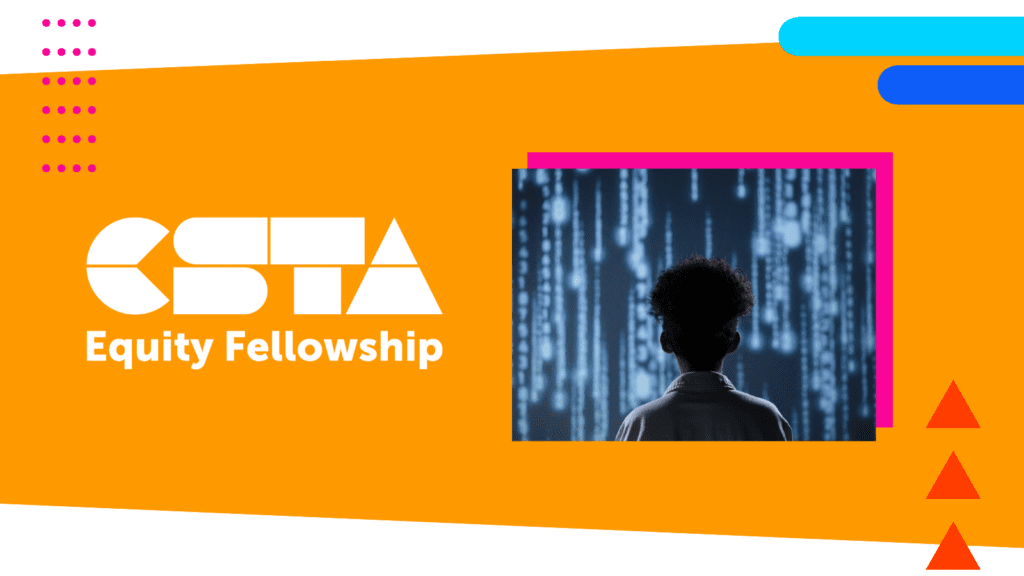Artificial intelligence (AI) is no longer a distant concept reserved for computer scientists and tech innovators—it has become an integral part of our daily lives and has an impact on the future of education. As educators and leaders, we have a responsibility to ensure that students, teachers, and administrators alike are equipped with the knowledge and skills to navigate this rapidly evolving landscape. AI literacy is not just about understanding what AI is; it’s about fostering a mindset that prepares individuals to use AI responsibly, ethically, and effectively.
In my role as a Project Specialist in Digital Learning and Computer Science Education with the San Bernardino County Superintendent of Schools, I’ve had the privilege of working alongside district leaders, educators, and students to advance equity and access in computer science education. These experiences have shaped my passion for ensuring that all learners—students and adults alike—have the opportunity to build their AI literacy.
The Importance of AI Literacy
AI literacy is essential for everyone—leaders, educators, and students. For school leaders, it means understanding the legal and ethical considerations surrounding AI implementation in schools. For educators, it involves leveraging AI tools to enhance teaching and learning while addressing potential challenges like bias and data privacy. For students, AI literacy is about more than just using AI; it’s about understanding how AI works, its limitations, and how they can use it to solve real-world problems in their communities.
Recent legislation in California now requires districts to incorporate AI literacy into ongoing programming and curriculum development. This mandate underscores the urgency of this work and has fueled our efforts to support districts in San Bernardino County as they navigate this new terrain.
The AI Task Force: Supporting District Leaders
One of our most impactful initiatives has been the creation of the AI Task Force. This work, brings together district leaders to build their understanding of the legal landscape surrounding AI in schools. Whether it’s navigating policies like FERPA, CIPA, IDEA, or other regulations, we ensure that leaders are equipped to make informed decisions about AI implementation.
The task force also addresses critical questions like:
- What are the conditions for protecting student data privacy when using AI tools?
- How can schools establish guidelines for responsible AI use, including addressing concerns like cheating?
- What age-appropriate considerations should be in place when introducing AI tools to students?
By fostering a collaborative environment, the AI Task Force empowers district leaders to create guidelines and practices that prioritize equity, safety, and ethical use of AI in education.
Empowering Educators with AI Tools
AI literacy is not just for students—it’s equally important for educators. Teachers are at the forefront of integrating AI into classrooms, and they need support to do so effectively. Our work with teachers focuses on helping them see how working with AI tools can:
- Lighten their workload by automating tasks like lesson planning, resource development, and communication with parents and the community.
- Provide personalized learning solutions tailored to the unique needs of their students.
- Develop their own AI literacy so they can guide students in understanding how AI tools work, addressing potential biases, and exploring how AI can be used to create solutions for their communities.
We recognize that teachers need practical, accessible resources to build their capacity in this area. That’s why we’ve championed the use of the Day of AI resources.
Day of AI: A Resource for Building AI Literacy
Developed through a partnership between MIT and i2 Learning, the Day of AI resources are a powerful tool for helping K–12 students and educators build AI literacy. These resources provide:
- Comprehensive lesson plans with step-by-step guidelines for implementation.
- Slide decks and teacher tutorial videos that make it easy for educators to understand and teach complex AI concepts.
- Engaging activities that demystify AI, helping students understand that it’s not magic—it’s machine learning.
These resources are designed to be accessible to educators with varying levels of experience with AI, making them an invaluable asset for schools looking to integrate AI literacy into their curricula.
Equity and Access: Creating Conditions for Success
At the heart of our work is a commitment to equity. AI literacy must be accessible to all students, regardless of their background or circumstances. To achieve this, schools must create conditions that ensure:
- Equitable Access to AI Tools and Resources: All students should have opportunities to engage with AI in meaningful ways.
- Safe and Ethical Use of AI: Guidelines must be in place to protect student data and ensure responsible use of AI tools.
- Support for Educators: Teachers need professional learning opportunities and resources to build their AI literacy and integrate AI into their teaching.
By addressing these conditions, we can create school communities where AI literacy is not just an add-on but a core component of education.
Looking Ahead
As we continue this work, I am inspired by the potential of AI to transform education in ways that benefit students, educators, and communities. AI literacy is not just about preparing students for the jobs of the future—it’s about empowering them to be informed, ethical, and innovative contributors to society.
Through initiatives like the AI Task Force, professional learning programs, and resources like the Day of AI, we are laying the foundation for a future where AI literacy is truly for all.
As educators and leaders, we have the opportunity—and the responsibility—to ensure that every student has the tools they need to thrive in an AI-driven world. Let’s work together to make that vision a reality.
References:
About the Author

Omar Shepherd is a Project Specialist in Digital Learning and Computer Science Education with the San Bernardino County Superintendent of Schools. He serves on the board of Computer Using Educators (CUE) and is a 2024–2025 Equity Fellow with the Computer Science Teachers Association (CSTA). Omar is dedicated to increasing equity and access to computer science education and has led statewide professional learning programs to drive impactful educational initiatives.

